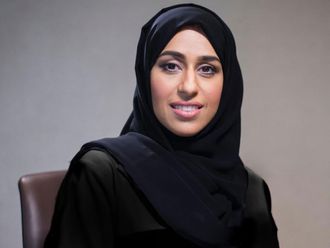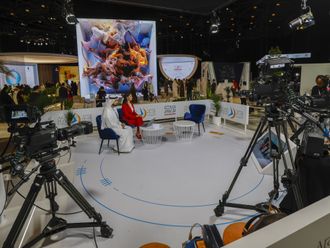Abu Dhabi: The UAE’s just cause and its commitment to international peace and security have seen it keep all options open to resolve the issue of the occupied UAE islands of Abu Mousa, and Greater and Lesser Tunbs, analysts said yesterday.
“For the last four decades, the UAE has always left all avenues open for the resolution of the issue of the three islands of Greater and lesser Tunbs and Abu Mousa,” said Dr Abdul Rahim Al Shaheen, associate professor of political science at UAE University.
Dr Al Shaheen, who is also a Federal National Council representative, said Emirati leaders including the late Shaikh Zayed Bin Sultan Al Nahyan, the nation’s founder, have repeatedly urged successive Iranian governments to end the dispute through direct negotiations or international arbitration. “These calls, however, have been consistently turned down by Tehran,” he said.
Iran occupied the three islands on the eve of the UAE’s independence in December 1971 and the issue has been a point of contention ever since.
The UAE reiterated its commitment to resolve the issue of the three occupied islands through international engagement either at the UN level or through the International Court of justice.
Shaikh Abdullah Bin Zayed Al Nahyan, Minister of Foreign Affairs, told a gathering of the fourth meeting of the Conference on Interaction and Confidence Building Measures in Asia (CICA) in Astana, Kazakhstan on Wednesday that the UAE is open to any international mediation or direct bilateral negotiation with Iran.
“Though this occupation is illegitimate, the UAE is still committed to international mediation or direct negotiations to reach a settlement to the territorial dispute that poses threat to international stability,” Shaikh Abdullah said.
Shaikh Abdullah said Tehran’s reluctance to hold talks had been hampering any progress on the issue since 1971.
Dr Ebtisam Al Katbi, professor of political science at UAE University, agreed the problem persisted mainly because of a reluctance on Iran’s part to find ways to resolve the issue. “The problem lies in Iran’s rejection of the fact that these islands belong to the UAE and turning down all calls to resolve the dispute by peaceful means including bilateral negotiations and international arbitration.”
Confirming the UAE’s right to the three islands, Dr Ahmad Jalal Al Tadmori, an Emirati historian, said the “hegemonic attitude” of Iran has always put paid to the efforts of the UAE to resolve the issue.
On whether Iran will respond positively to any mediation and who could play the broker’s role, Dr Abdul Khaleq Abdullah, professor of political science at UAE University, ruled out the possibility. “Iran is obstinate and has stubbornly rejected all calls for peaceful settlement of the dispute. Moreover, there is no regional or international party that is willing to assume a broker’s role between Iran and the UAE.”
However, Dr Ebtisam named Oman as an honest broker “because the sultanate has balanced ties with the two parties. Egypt can also be a leader in waiting which may assume this role after its internal and external problems [are addressed].”











